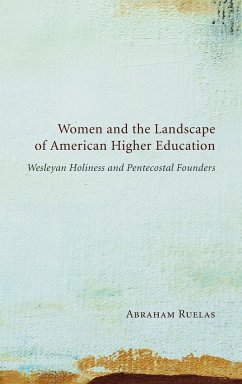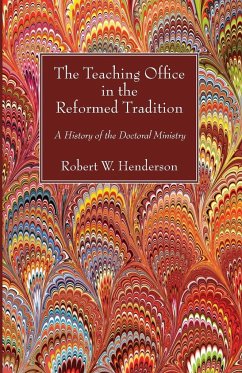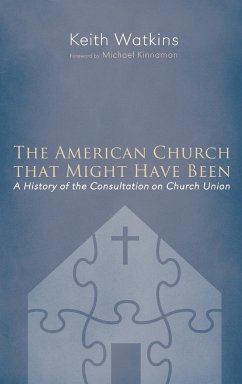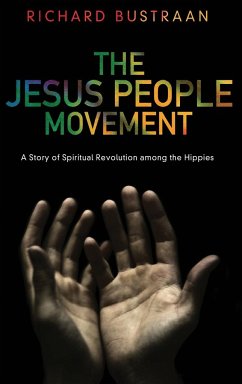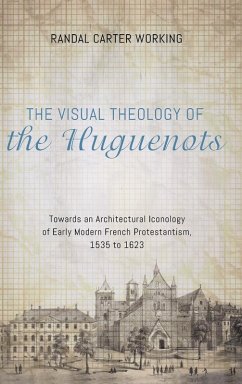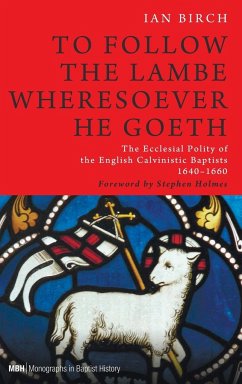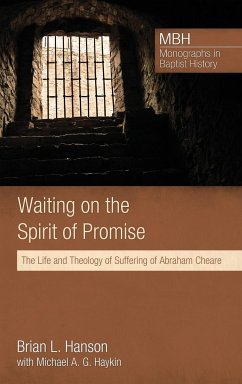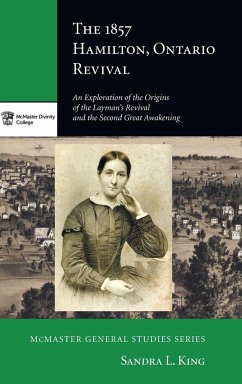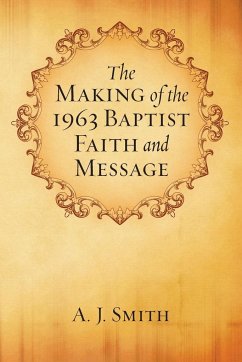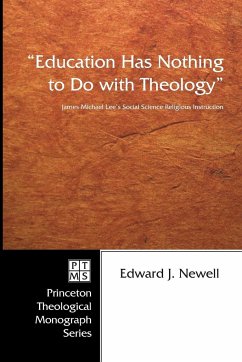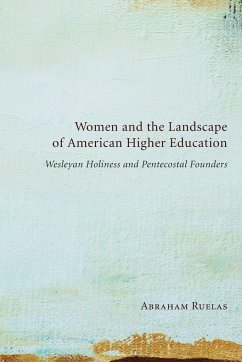
Women and the Landscape of American Higher Education
Versandkostenfrei!
Versandfertig in 1-2 Wochen
22,99 €
inkl. MwSt.
Weitere Ausgaben:

PAYBACK Punkte
11 °P sammeln!
The post-millennial vision of nineteenth century America led to greater educational opportunities for women, but these were focused on women's domestic efficacy in developing ""messianic mothers"" to help create the kingdom of God on earth. Yet, by embracing the doctrine of sanctification, Wesleyan Holiness women were able to move from ""women's sphere"" (domesticity) to the public sphere (public ministry), which they had come to see as their intended place. Not only did they make this shift for themselves, but they created Christian institutions of higher education that provided opportunities...
The post-millennial vision of nineteenth century America led to greater educational opportunities for women, but these were focused on women's domestic efficacy in developing ""messianic mothers"" to help create the kingdom of God on earth. Yet, by embracing the doctrine of sanctification, Wesleyan Holiness women were able to move from ""women's sphere"" (domesticity) to the public sphere (public ministry), which they had come to see as their intended place. Not only did they make this shift for themselves, but they created Christian institutions of higher education that provided opportunities for both women and men to prepare for public ministry. At the beginning of the twentieth century, a new force would enable women to further demonstrate their equality in the work of the Lord. In 1901, the Pentecostal movement was ushered in when Agnes Nevada Ozman became the first person in the modern era to speak in tongues. This movement saw the promise and fulfillment of equal empowerment of men and women for service by the Holy Spirit, which sent individuals throughout the world to further the kingdom of God. As the theological shift from a postmillennial to a premillennial view occurred, opportunity became necessity as priority was given to the creation of schools to prepare ministers to reach lost souls before the return of Jesus. The founding of such schools was pioneered by Wesleyan Holiness and Pentecostal women who carried the torch as their movement grew into the twentieth century. This book compiles the inspiring stories of some of the most notable women who, from society's perspective stepped outside established roles to claim a significant place in the history of American higher education.





